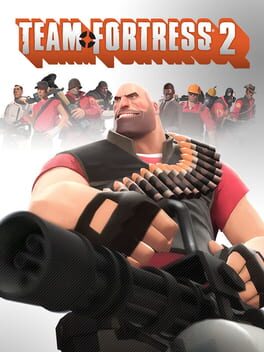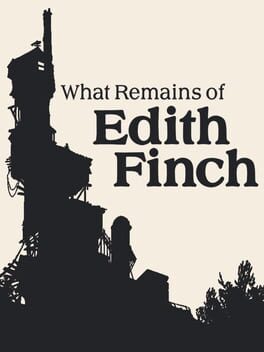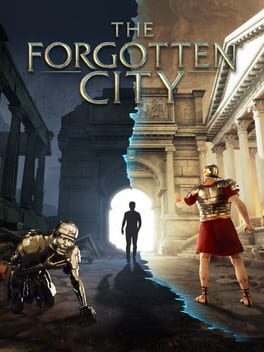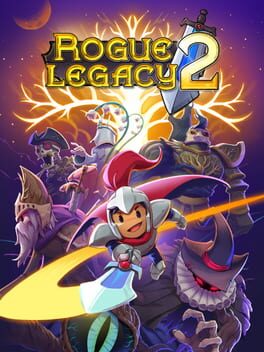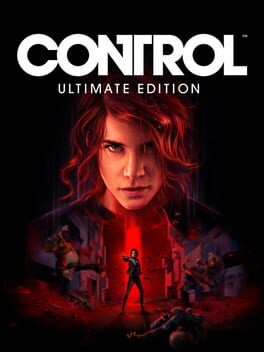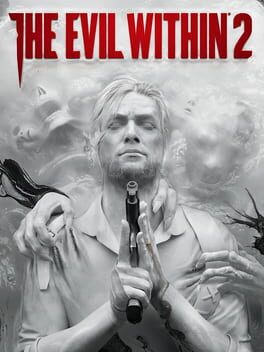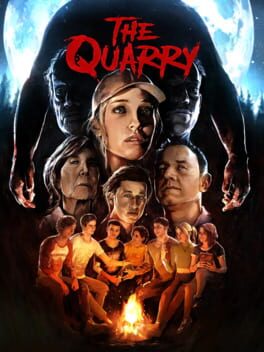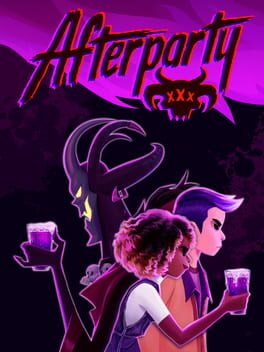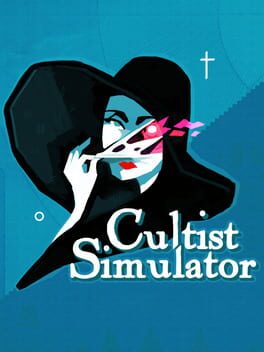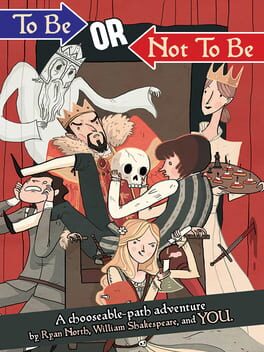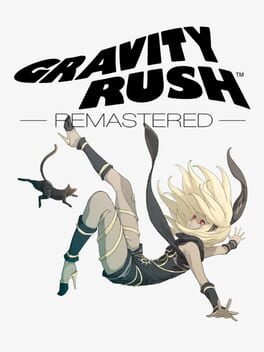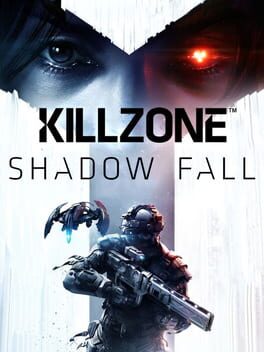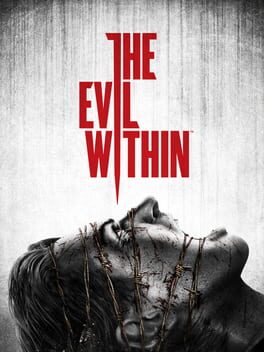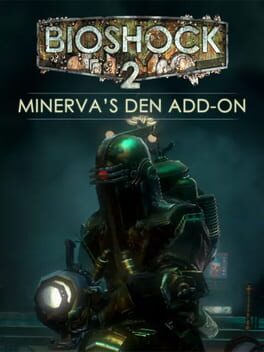kavreb
2007
A year or two ago, a Discord group I used to frequent chose this as their game of the month that they got together every Monday to play. Chasing nostalgia, I joined in. My expectations were low as every other time I had tried chasing nostalgia with TF2, it had been a sad shadow of what once was. But this time, despite all expectations, I had great fun, and for a few evenings that year I remembered why I used to love this game and had basically gifted my life to it.
It’s still pretty much dead though. But that’s fine. The main reason it worked back then so well was first of all that it was new and secondly because I had communities. For a while I was even in a clan made up of people who were in it not because they wanted to become good at professional gaming, but because they wanted to enjoy being in this one specific clan, made up of friends and acquaintances from one local server. My best buddy was our medic, I was our roamer soldier, the rest were people from the server, 3 of them friends in real life, and one who played with us often with his brother (who I hanged with a few times in real life). It was the kind of clan that you tell stories about later on and that you probably won’t repeat once it’s done.
After the clan inevitably died in a mixture of real-life barging in and unsuitable replacements, I tried a few other clans, but that part of the game was done for me. There was still so much fun before and after, back when the game was the coolest thing around, when people at Valve were as excited about working on it as we were seeing what crazy new stuff they came up with, back when the hat economy was a funny thing and not the building block of one of the worst things to ever happen to videogames, back when all my friends played it and I with them.
That’s all gone now, but such is life. As one person once told another, we’ll always have Paris.
It’s still pretty much dead though. But that’s fine. The main reason it worked back then so well was first of all that it was new and secondly because I had communities. For a while I was even in a clan made up of people who were in it not because they wanted to become good at professional gaming, but because they wanted to enjoy being in this one specific clan, made up of friends and acquaintances from one local server. My best buddy was our medic, I was our roamer soldier, the rest were people from the server, 3 of them friends in real life, and one who played with us often with his brother (who I hanged with a few times in real life). It was the kind of clan that you tell stories about later on and that you probably won’t repeat once it’s done.
After the clan inevitably died in a mixture of real-life barging in and unsuitable replacements, I tried a few other clans, but that part of the game was done for me. There was still so much fun before and after, back when the game was the coolest thing around, when people at Valve were as excited about working on it as we were seeing what crazy new stuff they came up with, back when the hat economy was a funny thing and not the building block of one of the worst things to ever happen to videogames, back when all my friends played it and I with them.
That’s all gone now, but such is life. As one person once told another, we’ll always have Paris.
Death is an inevitability.
Yet we spend such great parts of our life worried and anxious about it, trying to escape it, feeling sad and crushed about meeting it, grieving everything that we cared about inevitably succumbing to the great reaper.
It is as natural part of life as birth, perhaps even more so - you might not be born, but you will die.
What Remains of Edith Finch might seem as only about death. You will notice it for the first time when you open the Options menu - the book with their family tree is right there, and if you look at it for even a bit, you might notice something strange - only one name doesn't have a death date.
And far too many that do, have one too close to birth for comfort.
Indeed, the Finch family seems plagued by death, some in their old age, most in young, one terribly so; and you step into the shoes of the only living member of the family and through her eyes explore the huge family house from which no room of a dead person has ever been removed, only new parts have been added for the newly received.
It is a house of death, a literal museum of the family Finch, the rooms of its members kept in pristine conditions of the day they died - so deeply obsessed are the leaders of the family with memory that even a living twin had to share their room with the dead one for 8 years. It's a tragedy, and suffice to say, this family should really have moved on.
And yet the game is not nearly as morbid or as depressing as it sounds. Even within the most tragic of tales (even within the one I had the most difficulty playing through since my own child is the closest to that age, those moments mere miniature drops of time behind), there is hope and the acknowledgement of the beauty of life. A boy dies, but also flies; a man dies, but also lives; a girl dies, but within gives the greatest performance of her life; and so on. Within their deaths, they are not dying, but living, however short it might seem.
And you see it all through their eyes - within their rooms, you come upon the missives of their last memories and by entering them, you will learn what made them tick, and see their final moments; and again - while it sounds depressing, in the moment, it is not really so.
It is only afterwarfs that the real weight of this empty house and all those dead kids really hit me. The game, even within its very last moments, looks at death with acceptance and not with despair, but just a little dry sense of loss, as if it's too bad we didn't get to take the afternoon tea, but oh well, such is life.
Such is life, and such is dead; and What Remains of Edith Finch is the best walking sim I've ever played, and a surefire inclusion in my all time favourite games.
What's more, I yearn to walk again through the cluttered corridors and hidden passages of the childhood home of Edith Finch, even if all I'll meet there will be my lonely thoughts, the lingering ghosts, and the unavoidable fact of death. But what beauty as well!
Yet we spend such great parts of our life worried and anxious about it, trying to escape it, feeling sad and crushed about meeting it, grieving everything that we cared about inevitably succumbing to the great reaper.
It is as natural part of life as birth, perhaps even more so - you might not be born, but you will die.
What Remains of Edith Finch might seem as only about death. You will notice it for the first time when you open the Options menu - the book with their family tree is right there, and if you look at it for even a bit, you might notice something strange - only one name doesn't have a death date.
And far too many that do, have one too close to birth for comfort.
Indeed, the Finch family seems plagued by death, some in their old age, most in young, one terribly so; and you step into the shoes of the only living member of the family and through her eyes explore the huge family house from which no room of a dead person has ever been removed, only new parts have been added for the newly received.
It is a house of death, a literal museum of the family Finch, the rooms of its members kept in pristine conditions of the day they died - so deeply obsessed are the leaders of the family with memory that even a living twin had to share their room with the dead one for 8 years. It's a tragedy, and suffice to say, this family should really have moved on.
And yet the game is not nearly as morbid or as depressing as it sounds. Even within the most tragic of tales (even within the one I had the most difficulty playing through since my own child is the closest to that age, those moments mere miniature drops of time behind), there is hope and the acknowledgement of the beauty of life. A boy dies, but also flies; a man dies, but also lives; a girl dies, but within gives the greatest performance of her life; and so on. Within their deaths, they are not dying, but living, however short it might seem.
And you see it all through their eyes - within their rooms, you come upon the missives of their last memories and by entering them, you will learn what made them tick, and see their final moments; and again - while it sounds depressing, in the moment, it is not really so.
It is only afterwarfs that the real weight of this empty house and all those dead kids really hit me. The game, even within its very last moments, looks at death with acceptance and not with despair, but just a little dry sense of loss, as if it's too bad we didn't get to take the afternoon tea, but oh well, such is life.
Such is life, and such is dead; and What Remains of Edith Finch is the best walking sim I've ever played, and a surefire inclusion in my all time favourite games.
What's more, I yearn to walk again through the cluttered corridors and hidden passages of the childhood home of Edith Finch, even if all I'll meet there will be my lonely thoughts, the lingering ghosts, and the unavoidable fact of death. But what beauty as well!
2021
A great little sandbox puzzle of a game that I absolutely fell in love with. It starts showing its seams a bit by the end (by becoming gamey in how you now approach the order of things to do), but it’s short enough for that not become a problem. There’s some cool commentary on what people are like behind closed doors and on what is considered good and moral, and some of it can be rather biting (though some is also questionable). But all in all I loved it, warts and all. The (positive) ending even made me feel a bit emotional, even if it is silly as hell.
2020
I just don't like its style.
I played the first game, enjoyed it somewhat, but never fell in love with it in the same way I did with for example Dead Cells. The artistic style was just too cold and glistening, and the silliness not of the type I enjoyed much (also the characters looked weirdly bulky and a bit chibi to me - neither something I enjoy). The second game doesn't really change any of that so it was going to be an uphill battle anyway.
It doesn't help that in trying to improve the game, it makes some user-unfriendly choices that I really didn't appreciate, like not showing the player what they're choosing between before they've actually made the choice. It makes the choice pointless and the game a grind before having explored enough of it to have the information to actually make meaningful choices.
The action also feels clunky, especially in how you have to position your character; though that might be unfair as positioning can be a challenge in other such games as well, e.g. Dead Cells. I just never enjoyed it here or felt that I had enough alternatives to overcome it successfully enough.
The story offers some interest with its mystery, but not enough to drag me through it. Writing this review a month or two after last playing it I can't even really tell you what it's all about, some guy going crazy? It also wants to be too funny for its own good, undermining the seriousness with constant silliness.
I also found its bullet hell difficult to handle already in the intro level, and I found little enjoyment in completing most levels (excluding the challenge levels; those were pretty fun). I did appreciate the opportunity to fiddle around with the difficulty settings and I did enjoy the game more once I had turned some stuff lower or off, but after 5 or more hours I'm pretty sure this series just isn't for me.
I played the first game, enjoyed it somewhat, but never fell in love with it in the same way I did with for example Dead Cells. The artistic style was just too cold and glistening, and the silliness not of the type I enjoyed much (also the characters looked weirdly bulky and a bit chibi to me - neither something I enjoy). The second game doesn't really change any of that so it was going to be an uphill battle anyway.
It doesn't help that in trying to improve the game, it makes some user-unfriendly choices that I really didn't appreciate, like not showing the player what they're choosing between before they've actually made the choice. It makes the choice pointless and the game a grind before having explored enough of it to have the information to actually make meaningful choices.
The action also feels clunky, especially in how you have to position your character; though that might be unfair as positioning can be a challenge in other such games as well, e.g. Dead Cells. I just never enjoyed it here or felt that I had enough alternatives to overcome it successfully enough.
The story offers some interest with its mystery, but not enough to drag me through it. Writing this review a month or two after last playing it I can't even really tell you what it's all about, some guy going crazy? It also wants to be too funny for its own good, undermining the seriousness with constant silliness.
I also found its bullet hell difficult to handle already in the intro level, and I found little enjoyment in completing most levels (excluding the challenge levels; those were pretty fun). I did appreciate the opportunity to fiddle around with the difficulty settings and I did enjoy the game more once I had turned some stuff lower or off, but after 5 or more hours I'm pretty sure this series just isn't for me.
My the COVID game.
I came to it rather late into the COVID isolation, which meant I was in a perfect spot to connect with its depiction of offices with empty tables, dim lights, and rooms filled with workplaces with little privacy. As I walked through the Oldest House, I felt deep nostalgia and a kind of comfort for all the cubicles and desks I passed, imagining working there myself and doing all the regular office things that we’ve come to mock and dislike. After a year and a half of social distancing, any kind of social office life seemed comforting. And Control boasts one of the best places in gaming, and due to its own nostalgic view of a certain type of old workplace, there’s a lot to feed one’s imagination.
The mechanics themselves are pretty fun, though the action does get repetitive the nearer the end you get as you’ve already become something of a god, flying around and throwing rocks or shooting grenades at anybody who’s mindless enough to mess with you. The omnipotence is fun at first but becomes even somewhat boring by the end. And the game is a bit too long for what it’s offering, both mechanics-wise and in its story (that intrigues for a while but kinda runs out of anything interesting by the end).
I also made the mistake of trying out the DLCs in this complete edition before I had finished the game itself or before time had made me yearn for more Control and they ended up being the worst experience I had with the game; I didn’t finish any of them.
I did finish the main game though, and while by the end I was ready to be done with it, I will cherish what the game gave me with its first half for as long as I remember COVID. So, probably for my whole life.
I came to it rather late into the COVID isolation, which meant I was in a perfect spot to connect with its depiction of offices with empty tables, dim lights, and rooms filled with workplaces with little privacy. As I walked through the Oldest House, I felt deep nostalgia and a kind of comfort for all the cubicles and desks I passed, imagining working there myself and doing all the regular office things that we’ve come to mock and dislike. After a year and a half of social distancing, any kind of social office life seemed comforting. And Control boasts one of the best places in gaming, and due to its own nostalgic view of a certain type of old workplace, there’s a lot to feed one’s imagination.
The mechanics themselves are pretty fun, though the action does get repetitive the nearer the end you get as you’ve already become something of a god, flying around and throwing rocks or shooting grenades at anybody who’s mindless enough to mess with you. The omnipotence is fun at first but becomes even somewhat boring by the end. And the game is a bit too long for what it’s offering, both mechanics-wise and in its story (that intrigues for a while but kinda runs out of anything interesting by the end).
I also made the mistake of trying out the DLCs in this complete edition before I had finished the game itself or before time had made me yearn for more Control and they ended up being the worst experience I had with the game; I didn’t finish any of them.
I did finish the main game though, and while by the end I was ready to be done with it, I will cherish what the game gave me with its first half for as long as I remember COVID. So, probably for my whole life.
2017
Less consistently scary, but more fun, both in its stealth and shooting.
Yet I found myself missing the highs of fear from the first one or the constant dread I felt walking down the unpredictable villages, city streets, and hospitals of the first game.
The story manages to somehow be even hammier than the first one, but I can’t deny that as a parent the start of the game really worked for me - running into a burning building, knowing I’d die trying to save her, I thought, if it was my kid yelling for her daddy to help, I would to it instantly, fuck all my chances of survival. And while the finale of the game felt mechanically lackluster (especially the shooting gallery parts), as a parent and married, I found it touching and my love for Sebastian, the protagonist, was higher than ever before seeing the way he carried his daughter. And to think I actually missed the moody serious Sebastian from the previous game at first.
Some of the story stuff about overcoming grief and understanding that you are not at fault for things that you didn’t have any power over is also pretty good. And this time it also didn't take 6 hours for the game to finally start explaining something or giving you a proper goal.
Everything with the administrator is whacked though (and what is it with his animations? What is he doing with his hands all the time? Why? Nobody gesticulates like that). And I kinda low-key hated where the story went with most of the side-characters, thinking “fucking bullshit” more than once.
But I did like Union the city, even though I think it doesn’t do enough to stand out as a memorable video game place. There were some moments though where I had the same kind of nostalgic-for-stereotypical-life-from-the-movies feeling that so heavily pervaded my experience of Control (even though covid isolation has long since ended in my country), but the downside of the stealth and open maps is that the rules governing the enemy AI become more clear and the game itself through that feels safer. A horror game is less effective with its horror when it’s approached as just a set of mechanics and rules meant to create an experience. You’re supposed to fear the monsters, not think how juking them in unrealistic ways can allow you to backstab the whole gang without wasting any ammo.
Ultimately it’s this gaminess that proved to undermine the game for me. As the end was approaching, I was ready to be done with it, so facing another small area with a new enemy filled me with dread not for the monsters, but the boredom. There’s not enough ammunition to really enjoy it as an action game (at least not on Nightmare) so you’re forced to mess around with the AI in silly ways to succeed.
Crafting is another part of the game where I appreciate them trying something new, but with it is also gone the precise balance of ammunition from the first game where you always had too little to feel good but enough to survive that made it feel so great and added to the constant dread. Here there are times when I had to scavenge around before I could do sidequests because I just didn’t have enough ammunition to survive them; and bosses take so long that they have to magically keep refilling ammo drops for you to be able to survive.
I still enjoyed the game and coupled with the first Evil Within (which is in many ways a very different game, in some ways worse and in others better) I quite like this series. I’m both sad that there’s no third Evil Within, but also glad that poor Sebastian didn’t have to return to this hell again.
Yet I found myself missing the highs of fear from the first one or the constant dread I felt walking down the unpredictable villages, city streets, and hospitals of the first game.
The story manages to somehow be even hammier than the first one, but I can’t deny that as a parent the start of the game really worked for me - running into a burning building, knowing I’d die trying to save her, I thought, if it was my kid yelling for her daddy to help, I would to it instantly, fuck all my chances of survival. And while the finale of the game felt mechanically lackluster (especially the shooting gallery parts), as a parent and married, I found it touching and my love for Sebastian, the protagonist, was higher than ever before seeing the way he carried his daughter. And to think I actually missed the moody serious Sebastian from the previous game at first.
Some of the story stuff about overcoming grief and understanding that you are not at fault for things that you didn’t have any power over is also pretty good. And this time it also didn't take 6 hours for the game to finally start explaining something or giving you a proper goal.
Everything with the administrator is whacked though (and what is it with his animations? What is he doing with his hands all the time? Why? Nobody gesticulates like that). And I kinda low-key hated where the story went with most of the side-characters, thinking “fucking bullshit” more than once.
But I did like Union the city, even though I think it doesn’t do enough to stand out as a memorable video game place. There were some moments though where I had the same kind of nostalgic-for-stereotypical-life-from-the-movies feeling that so heavily pervaded my experience of Control (even though covid isolation has long since ended in my country), but the downside of the stealth and open maps is that the rules governing the enemy AI become more clear and the game itself through that feels safer. A horror game is less effective with its horror when it’s approached as just a set of mechanics and rules meant to create an experience. You’re supposed to fear the monsters, not think how juking them in unrealistic ways can allow you to backstab the whole gang without wasting any ammo.
Ultimately it’s this gaminess that proved to undermine the game for me. As the end was approaching, I was ready to be done with it, so facing another small area with a new enemy filled me with dread not for the monsters, but the boredom. There’s not enough ammunition to really enjoy it as an action game (at least not on Nightmare) so you’re forced to mess around with the AI in silly ways to succeed.
Crafting is another part of the game where I appreciate them trying something new, but with it is also gone the precise balance of ammunition from the first game where you always had too little to feel good but enough to survive that made it feel so great and added to the constant dread. Here there are times when I had to scavenge around before I could do sidequests because I just didn’t have enough ammunition to survive them; and bosses take so long that they have to magically keep refilling ammo drops for you to be able to survive.
I still enjoyed the game and coupled with the first Evil Within (which is in many ways a very different game, in some ways worse and in others better) I quite like this series. I’m both sad that there’s no third Evil Within, but also glad that poor Sebastian didn’t have to return to this hell again.
2022
Why do game developers think that adding QTEs to a lousy movie will make it into an exciting game?
Seeing as The Quarry was leaving PSN, I thought to try it out with my partner, and so on one cosy autumn eve we cuddled up on the sofa for an enjoyable spooky-month event, and made the mistake of choosing this.
We played for an hour or two, and it was after a long boring setup for a couple of characters instantly discarded, and then another long setup for a whole new cast of characters, when I had the choice between taking a fast route back to the cabin, or the scenic route, and I opted for the scenic one, that my partner decided that enough was enough and they were just too tired to continue that evening.
The tiredness lasted right up to The Quarry leaving PSN, and while I still harbour some interest in this campy slasher, I will never pay 60 euros for it (or, for that matter, even a quarter of that), when there are so many better actual horror movies to pick from, or actually engaging coop games to play.
I've played through one of these games before, and while it was no masterpiece in horror game storytelling and whatnot, it spent its intro on developing characters that mattered to the plot and giving them some poignant conflicts. It also didn't paragraph all their feelings in a "Policeman Joe will remember this" kind of flying emotions in reply to your most "important" dialogue choices.
They also didn't all move and smile like an AIs understanding of how human faces and necks work. The Quarry might not have a single good scare or dread to its name (in the first few hours), but it sure can creep you out. Too bad it's accidental.
I might return to it one day, because I'm a sucker for stuff like this; but I sure hope I won't.
Seeing as The Quarry was leaving PSN, I thought to try it out with my partner, and so on one cosy autumn eve we cuddled up on the sofa for an enjoyable spooky-month event, and made the mistake of choosing this.
We played for an hour or two, and it was after a long boring setup for a couple of characters instantly discarded, and then another long setup for a whole new cast of characters, when I had the choice between taking a fast route back to the cabin, or the scenic route, and I opted for the scenic one, that my partner decided that enough was enough and they were just too tired to continue that evening.
The tiredness lasted right up to The Quarry leaving PSN, and while I still harbour some interest in this campy slasher, I will never pay 60 euros for it (or, for that matter, even a quarter of that), when there are so many better actual horror movies to pick from, or actually engaging coop games to play.
I've played through one of these games before, and while it was no masterpiece in horror game storytelling and whatnot, it spent its intro on developing characters that mattered to the plot and giving them some poignant conflicts. It also didn't paragraph all their feelings in a "Policeman Joe will remember this" kind of flying emotions in reply to your most "important" dialogue choices.
They also didn't all move and smile like an AIs understanding of how human faces and necks work. The Quarry might not have a single good scare or dread to its name (in the first few hours), but it sure can creep you out. Too bad it's accidental.
I might return to it one day, because I'm a sucker for stuff like this; but I sure hope I won't.
2019
Funny, until it's not. Intriguing, until it's not. Meaningful way to spend one’s living time, until it's not.
What a disappointment. A game about life and death and partying, it does have a few moments of poignancy, but it's mostly filled with empty blather.
It starts well enough, with a surprising and amusing introduction to its world, but it quickly becomes clear how little the writing really matters and how slowly any development happens, with the main action being leading your twin leads around chasing social macguffins. When around the middle of the game I finally met the devil and he told me that I have to visit two more people before I can challenge him, I groaned at the meaningless stretching of its playtime. Not to mention the long silent runs with occasionally repeating dialogue or sending you from island to island for no good reason or revisiting islands that you've already been to but have nothing visually new to offer while you silently run across through the same boring area, wasting more time whenever you take another wrong turn.
In short, the game doesn't seem to have much respect for its player’s time; or itself really, with its many “meta” jokes about limited player interactivity and barebones world-building and whatnot - it really isn’t that cute to call something you made bad when it really is lacking in what you're making fun of, and I wish creators understood that and instead of trying to be funny, laden with heavy “hi us kids” energy, they would just concentrate on their strong suits instead of mocking the player for even playing their game.
Which is all to say that it's a shame. I would have gladly finished the game on my own, but I just couldn't get myself to boot it up again and so just finished the second half of the game on YouTube. Reading the comments, I wasn't the only one.
And having now finished watching it, I'm not sure whether even that was worth it. There are still some entertaining moments, even some intriguing happenings, and I quite liked where the story of Satan's siblings headed ultimately, but I'm also glad I didn't have to play to get there myself and that really doesn't bode well for something trying to be a “game”.
So much for being excited for Oxenfree 2 ...
What a disappointment. A game about life and death and partying, it does have a few moments of poignancy, but it's mostly filled with empty blather.
It starts well enough, with a surprising and amusing introduction to its world, but it quickly becomes clear how little the writing really matters and how slowly any development happens, with the main action being leading your twin leads around chasing social macguffins. When around the middle of the game I finally met the devil and he told me that I have to visit two more people before I can challenge him, I groaned at the meaningless stretching of its playtime. Not to mention the long silent runs with occasionally repeating dialogue or sending you from island to island for no good reason or revisiting islands that you've already been to but have nothing visually new to offer while you silently run across through the same boring area, wasting more time whenever you take another wrong turn.
In short, the game doesn't seem to have much respect for its player’s time; or itself really, with its many “meta” jokes about limited player interactivity and barebones world-building and whatnot - it really isn’t that cute to call something you made bad when it really is lacking in what you're making fun of, and I wish creators understood that and instead of trying to be funny, laden with heavy “hi us kids” energy, they would just concentrate on their strong suits instead of mocking the player for even playing their game.
Which is all to say that it's a shame. I would have gladly finished the game on my own, but I just couldn't get myself to boot it up again and so just finished the second half of the game on YouTube. Reading the comments, I wasn't the only one.
And having now finished watching it, I'm not sure whether even that was worth it. There are still some entertaining moments, even some intriguing happenings, and I quite liked where the story of Satan's siblings headed ultimately, but I'm also glad I didn't have to play to get there myself and that really doesn't bode well for something trying to be a “game”.
So much for being excited for Oxenfree 2 ...
2018
Plagued by unnatural dreams and supported by a small inheritance that I received from an eerie old man who died in the hospital where I used to work as a janitor, I set myself to pulling back the veil that protects our reality from the abnormalities beneath it, searching for answers, direction, and something more, something I couldn't yet put to words. Slowly, I collected a few followers and established a fledgling cult with little to our name besides ambition and a crazy idea, and a mission that would put us on the map. I kept telling my followers to just wait, we'll soon take on that big mission while sending my most trusted believer seeking opportunities in the streets in the hope of alleviating our sudden financial troubles as the inheritance ran out and I was busy working myself into another sickbed. Finally, having no vitality left to fight another bout of illness, I croaked, leaving behind a lost believer and two hangers-on who returned to their regular life with nothing to show for it. As for the believer, I hope they'll forgive me in time or, at the very least, raise me from the dead.
I tried again.
This time I was the inspector who, following a lead, had happened on the trail of the wannabe cultist leader. The leader might have died, but his right hand was alive. But as I got closer and closer to her, the new-found madness in my dreams started to envelop me and just as I was ready to nail her with damning evidence, dread devoured me and I was lost.
I tried again. And again. And again, the cycle furiously repeating into another early death.
You get the point. It's a complicated game to get into with little direction and no hand-holding, the realities of a cult simulation quickly beating the novice into the ground just to start again with the same story from a selection that becomes increasingly limited walking down the familiar streets into another unexpected and seemingly unavoidable death. You might learn something from your every last loss, but there are so many other losses waiting.
Slowly a sense of meaningless creeps in as I tap through the same actions I've done before, stumbling into the same problems I faced before, with too little knowledge to still deal with them. I feel more comfortable with its fiddly interface that is constantly threatening to become just way too much, especially on the small cellphone screen, and there’s still a desire to dive deeper into this weird world that so successfully seems to evoke the feeling of being called by the secret whispers from another side to become the person that you usually take on in some horror game as the mid- or late-game boss, depending on whether it's going to send you against the demon itself in the end or not.
But it’s a game that encourages experimentation and exploration in its intro but punishes you severely for not knowing how to play the game properly. It’s as if to really enjoy it, you must read a guide beforehand; but I’d prefer a game to convince me there’s value to reading a guide for it before I actually do that.
In another playthrough, thinking myself ready, I took on the big mission, but it soon proved to be much more demanding of our resources than I had thought, and as my closest believer succumbed to the wounds suffered, we returned with nothing to show for it, back to our withered home. Our cult was done and I returned to my normal everyday life that could never be the same again, now aware of the precarious balance between our worlds, but impotent to do anything about it. I hope my believer behind the veil will find it in themself to forgive me; I will not be raising them again. My Google Play subscription is through and I’m not renewing it for this game.
I tried again.
This time I was the inspector who, following a lead, had happened on the trail of the wannabe cultist leader. The leader might have died, but his right hand was alive. But as I got closer and closer to her, the new-found madness in my dreams started to envelop me and just as I was ready to nail her with damning evidence, dread devoured me and I was lost.
I tried again. And again. And again, the cycle furiously repeating into another early death.
You get the point. It's a complicated game to get into with little direction and no hand-holding, the realities of a cult simulation quickly beating the novice into the ground just to start again with the same story from a selection that becomes increasingly limited walking down the familiar streets into another unexpected and seemingly unavoidable death. You might learn something from your every last loss, but there are so many other losses waiting.
Slowly a sense of meaningless creeps in as I tap through the same actions I've done before, stumbling into the same problems I faced before, with too little knowledge to still deal with them. I feel more comfortable with its fiddly interface that is constantly threatening to become just way too much, especially on the small cellphone screen, and there’s still a desire to dive deeper into this weird world that so successfully seems to evoke the feeling of being called by the secret whispers from another side to become the person that you usually take on in some horror game as the mid- or late-game boss, depending on whether it's going to send you against the demon itself in the end or not.
But it’s a game that encourages experimentation and exploration in its intro but punishes you severely for not knowing how to play the game properly. It’s as if to really enjoy it, you must read a guide beforehand; but I’d prefer a game to convince me there’s value to reading a guide for it before I actually do that.
In another playthrough, thinking myself ready, I took on the big mission, but it soon proved to be much more demanding of our resources than I had thought, and as my closest believer succumbed to the wounds suffered, we returned with nothing to show for it, back to our withered home. Our cult was done and I returned to my normal everyday life that could never be the same again, now aware of the precarious balance between our worlds, but impotent to do anything about it. I hope my believer behind the veil will find it in themself to forgive me; I will not be raising them again. My Google Play subscription is through and I’m not renewing it for this game.
2015
A hilarious comedy game with too much repetition.
There are too many endings that force you to replay huge chunks of the story in order to get more jokes from the other path, turning the game from a fun choose-your-own-adventure to a poorly working Skinner machine. Though it must be said it did get better once I found the skip buttons.
I would still have liked there to be better checkpointing, e.g. before every choice so that if you instantly die (which you often do, in very funny ways, so they're annoyingly worth searching out), you can instantly return to it after seeing the art for the ending.
The writing is great though, and following the "actual" Hamlet's story as Shakespeare wrote it (especially if you start with Ophelia) is one of the funniest things I've ever read in my whole life. I’ll probably return to this game from time to time to search out lines that I’ve missed, just because it’s so funny, but I still can’t get over the repetition (if you couldn’t tell from the fact it was the thing I spent most of the review complaining about).
There are too many endings that force you to replay huge chunks of the story in order to get more jokes from the other path, turning the game from a fun choose-your-own-adventure to a poorly working Skinner machine. Though it must be said it did get better once I found the skip buttons.
I would still have liked there to be better checkpointing, e.g. before every choice so that if you instantly die (which you often do, in very funny ways, so they're annoyingly worth searching out), you can instantly return to it after seeing the art for the ending.
The writing is great though, and following the "actual" Hamlet's story as Shakespeare wrote it (especially if you start with Ophelia) is one of the funniest things I've ever read in my whole life. I’ll probably return to this game from time to time to search out lines that I’ve missed, just because it’s so funny, but I still can’t get over the repetition (if you couldn’t tell from the fact it was the thing I spent most of the review complaining about).
2022
The fear of death
Is what this game is so good at invoking
Even when you know it will not happen
Cause the game is much kinder than it seems.
The writing is throughout envisioning a cold world encompassed in darkness with the few specks of light giving you hope while at every periphery the potential for absolute collapse lies in wait.
But the game believes in you, and in humanity, and from the space-punk drenched corridors it carves you a life.
Citizen Sleeper is a cavalcade of space opera and cyberpunk weaved together, with a healthy injection of humanism (and some nice diversity). There are many ways this story can end, and you can see them all with a bit of reloading. As the game goes on, it becomes easier to survive as you learn the place, create connections, gather resources, and overall carve out your own little place in this world floating through space where you can feel relatively safe, the panicked survival of the first part of the game giving ground to a more relaxed just-getting-by (though it does feel like you've broken the game). You can even feed a cat.
The knowledge is always there, that you're not quite part of them; but the heart of the game is firmly in a kind of multicultural amalgam of poor people trying to live beneath the larger political and economic forces that occasionally break through, and usually not in a helpful capacity. The free DLC trilogy deals fully with such bigger forces, but the predominant themes still concern the lives of those that are othered and the people who can accept them.
For a game where the main visual is an nondescript space station and the only colours the occasional (very cool) character portraits and the gameplay basically scrolling up and down the station, clicking on points of interest and choosing dialogue options, it's a wonder how riveting and exciting this game can be, and how atmospheric, the writing pitch-perfectly evoking the feeling of living on a capitalist space station (with all the nostalgic strength of a childhood spent in sci-fi novels), and how touching, with moments that will remain (it's the kid and the dad for me - for, amongst others, deeply personal reasons …), right up to the gorgeous ending of the last free DLC.
Almost like a good book - only there you won't feel you're one bad choice away from dying of an illness that you don't have the money to cure.
Oh damn, it was "living under later-than-late stage capitalism" sim after all.
Is what this game is so good at invoking
Even when you know it will not happen
Cause the game is much kinder than it seems.
The writing is throughout envisioning a cold world encompassed in darkness with the few specks of light giving you hope while at every periphery the potential for absolute collapse lies in wait.
But the game believes in you, and in humanity, and from the space-punk drenched corridors it carves you a life.
Citizen Sleeper is a cavalcade of space opera and cyberpunk weaved together, with a healthy injection of humanism (and some nice diversity). There are many ways this story can end, and you can see them all with a bit of reloading. As the game goes on, it becomes easier to survive as you learn the place, create connections, gather resources, and overall carve out your own little place in this world floating through space where you can feel relatively safe, the panicked survival of the first part of the game giving ground to a more relaxed just-getting-by (though it does feel like you've broken the game). You can even feed a cat.
The knowledge is always there, that you're not quite part of them; but the heart of the game is firmly in a kind of multicultural amalgam of poor people trying to live beneath the larger political and economic forces that occasionally break through, and usually not in a helpful capacity. The free DLC trilogy deals fully with such bigger forces, but the predominant themes still concern the lives of those that are othered and the people who can accept them.
For a game where the main visual is an nondescript space station and the only colours the occasional (very cool) character portraits and the gameplay basically scrolling up and down the station, clicking on points of interest and choosing dialogue options, it's a wonder how riveting and exciting this game can be, and how atmospheric, the writing pitch-perfectly evoking the feeling of living on a capitalist space station (with all the nostalgic strength of a childhood spent in sci-fi novels), and how touching, with moments that will remain (it's the kid and the dad for me - for, amongst others, deeply personal reasons …), right up to the gorgeous ending of the last free DLC.
Almost like a good book - only there you won't feel you're one bad choice away from dying of an illness that you don't have the money to cure.
Oh damn, it was "living under later-than-late stage capitalism" sim after all.
This is the game that rejuvenated me after the depressing mediocrity of Killzone: Shadow Fall.
I found this game’s first five minutes to be more stirring, artistic, amusing, and filled with originality than all of the hours I played Killzone. While mechanically it can get repetitive as you get deeper into the game, one really cannot undersell how intriguing and freeing the gravity-changing mechanic is, from the moment it’s introduced, through the many times it became fiddly or outright difficult to control during the game, right up to the very end by which time it had become second nature (even if still remaining fiddly).
If a good game needs one noteworthy mechanic to draw attention, Gravity Rush has one of the best.
And even while the game doesn’t introduce much mechanically new past a certain point, it’s the mystery of the world and its weird condition that kept me hooked and made me put the sequel on download the moment the final cutscenes had finished.
The only noteworthy problem I have with the game is that its visual portrayal of its leading female characters, especially the one you control, is very sexualized, suiting the lead up in such a weirdly sexual costume that even a character in the game comments on it negatively (and her “Raven” counterpart has an even worse one). You can unlock alternate costumes, but they aren’t much better, each of them appealing to some fetish, be it French maid, schoolgirl, sexy cat girl (which is made additionally creepier having been given to her by the obviously older policeman), or a tight-fitting soldier’s uniform (which I guess is the least fetishistic? But also the one you get last and, personally, too militaristic for my taste). The intention is additionally made clear when every time you don a new costume for the first time, it plays a montage of the camera ogling her body, with half of them starting with a close-up of her thrusting her butt back.
But at the same time Kat, the lead, is an immensely likable character and it’s no wonder she was praised by the contemporary reviews. She’s slightly naive, but not dangerously so, acting self-assured enough, especially when detecting a lack of empathy in others or standing up for what she considers right (or her own safety!) Every interaction that she has with other people makes her feel like a more well-rounded character, and that writing tends to expand to the side characters as well, even if not to as deep a degree.
And there are moments when the game turns a critical eye towards the behaviour of men, especially in the Spy pack’s second sidequest that notably calls out the way men can ignore women's safety by not turning attention to when they feel vulnerable (even when they speak out) and the creepiness of Kat’s stalker (though I’d say he still got off way too lightly). Kat’s own infatuations are also portrayed in a way that feels life-like and cute, like watching your own child discovering themselves (just too bad she’s mostly clothed in costumes meant to appeal mainly to a horny male gaze).
But none of my complaints are enough to take away from the fact that this is the kind of game that I love, that makes me feel hopeful for gaming and makes the time spent doing essentially meaningless things magical. I am also very excited to see where the story goes and am eager to spend more time listening to Kat tell off dumb guys. And damn that cat is cool.
I found this game’s first five minutes to be more stirring, artistic, amusing, and filled with originality than all of the hours I played Killzone. While mechanically it can get repetitive as you get deeper into the game, one really cannot undersell how intriguing and freeing the gravity-changing mechanic is, from the moment it’s introduced, through the many times it became fiddly or outright difficult to control during the game, right up to the very end by which time it had become second nature (even if still remaining fiddly).
If a good game needs one noteworthy mechanic to draw attention, Gravity Rush has one of the best.
And even while the game doesn’t introduce much mechanically new past a certain point, it’s the mystery of the world and its weird condition that kept me hooked and made me put the sequel on download the moment the final cutscenes had finished.
The only noteworthy problem I have with the game is that its visual portrayal of its leading female characters, especially the one you control, is very sexualized, suiting the lead up in such a weirdly sexual costume that even a character in the game comments on it negatively (and her “Raven” counterpart has an even worse one). You can unlock alternate costumes, but they aren’t much better, each of them appealing to some fetish, be it French maid, schoolgirl, sexy cat girl (which is made additionally creepier having been given to her by the obviously older policeman), or a tight-fitting soldier’s uniform (which I guess is the least fetishistic? But also the one you get last and, personally, too militaristic for my taste). The intention is additionally made clear when every time you don a new costume for the first time, it plays a montage of the camera ogling her body, with half of them starting with a close-up of her thrusting her butt back.
But at the same time Kat, the lead, is an immensely likable character and it’s no wonder she was praised by the contemporary reviews. She’s slightly naive, but not dangerously so, acting self-assured enough, especially when detecting a lack of empathy in others or standing up for what she considers right (or her own safety!) Every interaction that she has with other people makes her feel like a more well-rounded character, and that writing tends to expand to the side characters as well, even if not to as deep a degree.
And there are moments when the game turns a critical eye towards the behaviour of men, especially in the Spy pack’s second sidequest that notably calls out the way men can ignore women's safety by not turning attention to when they feel vulnerable (even when they speak out) and the creepiness of Kat’s stalker (though I’d say he still got off way too lightly). Kat’s own infatuations are also portrayed in a way that feels life-like and cute, like watching your own child discovering themselves (just too bad she’s mostly clothed in costumes meant to appeal mainly to a horny male gaze).
But none of my complaints are enough to take away from the fact that this is the kind of game that I love, that makes me feel hopeful for gaming and makes the time spent doing essentially meaningless things magical. I am also very excited to see where the story goes and am eager to spend more time listening to Kat tell off dumb guys. And damn that cat is cool.
It was after 30 minutes of cutscenes, clichés and nothing interesting happening that I understood I can just skip the cutscenes and the whole story and lose little in the progress. I appreciate that they tried to do something different by starting you as a child escaping a city with his father, but they fill it with more clichés and waste the opportunity to build any meaningful relationships so it would have been better to just throw you in the action right away.
Only then you'd understand how boring the action is. The OWL robot adds an additional tactical layer to the shooting that offers some interest, and some of the weapons have cool firing modes, but in many ways it's too cookie-cutter, while at the same time so surprisingly challenging that I even used the wallhack-granting echo ability which I usually never use in games that have something similar. After a while even the OWL becomes uninteresting once you understand how little it adds to the mechanics of the game (I do love the zipline though, the best thing in the game). And it’s like that with every “unique” thing that the game tries, for example the zero-G looks pretty and interesting at first, but soon becomes nothing more than short moments of travel between the usual puzzling and fighting. I was reminded of the zero-G in Dead Space, the weight of it and the fear that game generated, and Killzone did not shine in comparison.
I did try to enjoy it still, and there were a few fun moments amidst the action when it managed to entertain, but I would probably have enjoyed the game more if I could carry more than 2 weapons, especially as you can't change one of them. As it is, the utter mediocrity of the whole thing just got too much as I felt my life wasting away at it.
Frankly, I hate playing games like this - they’re not bad enough to be trash, but they’re not good enough to be much of anything else. Slowly, as I play them, I start doubting my own critical faculties and the inherent value of all gaming. Are there even any good games? Or is it just me vibing with something and not with others and games are mostly just like this, a mediocre waste of time?
It’s foolishness, of course, and the best cure for it is to stop playing the bad game and start something good because that’ll instantly remind you why you love gaming. This game was mediocre enough to fool me into thinking I might get something positive from playing it, but thankfully I decided to try out something else, a much older game, that within its intro credits had more originality than Killzone had shown in 4 hours, and after I finished my first session of this game, I knew what I had to do - go uninstall Killzone, and never look back. Not all PlayStation Hits deserve the title.
Only then you'd understand how boring the action is. The OWL robot adds an additional tactical layer to the shooting that offers some interest, and some of the weapons have cool firing modes, but in many ways it's too cookie-cutter, while at the same time so surprisingly challenging that I even used the wallhack-granting echo ability which I usually never use in games that have something similar. After a while even the OWL becomes uninteresting once you understand how little it adds to the mechanics of the game (I do love the zipline though, the best thing in the game). And it’s like that with every “unique” thing that the game tries, for example the zero-G looks pretty and interesting at first, but soon becomes nothing more than short moments of travel between the usual puzzling and fighting. I was reminded of the zero-G in Dead Space, the weight of it and the fear that game generated, and Killzone did not shine in comparison.
I did try to enjoy it still, and there were a few fun moments amidst the action when it managed to entertain, but I would probably have enjoyed the game more if I could carry more than 2 weapons, especially as you can't change one of them. As it is, the utter mediocrity of the whole thing just got too much as I felt my life wasting away at it.
Frankly, I hate playing games like this - they’re not bad enough to be trash, but they’re not good enough to be much of anything else. Slowly, as I play them, I start doubting my own critical faculties and the inherent value of all gaming. Are there even any good games? Or is it just me vibing with something and not with others and games are mostly just like this, a mediocre waste of time?
It’s foolishness, of course, and the best cure for it is to stop playing the bad game and start something good because that’ll instantly remind you why you love gaming. This game was mediocre enough to fool me into thinking I might get something positive from playing it, but thankfully I decided to try out something else, a much older game, that within its intro credits had more originality than Killzone had shown in 4 hours, and after I finished my first session of this game, I knew what I had to do - go uninstall Killzone, and never look back. Not all PlayStation Hits deserve the title.
2014
Man, 16 hours sure feels a lot, especially for a horror game that for the first half keeps dropping more and more mystery on top of more mystery. It’s no wonder that I finished several other games in between starting and finishing this (including R&C: Rift Apart and Gravity Rush Remastered)
There are enough reasons for the game to deserve some attention though. From the very first moment, it looks great, with darkly graded atmospheric asylums, cityscapes, and the periphery of a broken city. Even the sewer level is noteworthy for its gooey dark malaise.
The action feels nicely heavy, especially when Sebastian, the player character, tries throwing anything, moving his whole body forward with the inertia, making handling grenades a tricky affair and bottles for stealth perhaps even trickier (though once I managed to figure out the timing and placement of the body, stealth became something I looked forward to).
The shooting has a similar weight to it, which I found to be enjoyable. The weapon selection is limited and mostly ordinary (you’ve got your pistol, your shotgun, your sniper rifle, and, if you’re replaying it, even some assault rifle), with the exception of the crossbow that you can craft different arrows for, but unlike some of the more boring shooters I’ve recently tried, the way the weapons handle here and the natural threat the game instils in every action sequence make up for what they might lack in originality. Perhaps regular weapons even add to the verisimilitude that helps a horror game to be more effective.
They have also managed to strike a good balance in how much ammunition they provide you with, managing to make it always feel as if you have just a bit too little and yet always enough. The ability to craft arrows helps, though considering how difficult and dangerous it is to get the crafting components (often gotten from disarmed traps that sometimes blow up in your face if you disarmed them badly) you always feel like you have to be careful about not wasting them.
The story, concerning mental hospitals and impossible events, made me fear at first the most that it would become another boring “oh, it was all in his mind!”, and while it ultimately certainly has touches of it, it’s done in a way that is somewhat unique and more interesting for it. What’s more, there are no real twists in the narrative, just the slow reveal of the true nature of this nightmarish world. I even became genuinely interested in the story, once the game started providing some answers. Even Sebastian’s backstory which I had scoffed at with the lightly-sexist first note, had me running with glee whenever I saw the tell-tale reddish aura of another note about his past. There were entries in it that as a parent really touched me and made me care more for this one-note character.
Another reason I had to take breaks from the game though is how thoroughly unnerving it can be. It doesn’t spend much time scaring the viewer through disgusting sights or jumpscares (though there are certainly both, especially the first, with some truly impeccable body horror), but there’s a constant sense of dread drenching the whole game. Part of it is due to how vulnerable Sebastian feels. Sure, he’s a strong-bodied hard-jawed macho man who’s pretty damn good with a gun, and yet that’s nothing compared to the army of weird creatures, the way danger can come from anywhere, the simple oppressive atmosphere of the game, or his almost utter impotence when confronted with the uncontrollable nature of his world, even further emphasising his emasculated role. The few times that you feel powerful or safe, for example the mounted gun sequences, are all the more enjoyable for how rare they are.
My biggest problem with the game though is its infatuation with one-hit deaths. Many sequences filled with traps or monsters require you to execute them to near perfection or be sent back to the beginning with an instant death, however much health you might have had. While I might understand the aim (though I’m not sure I do), moments like this quickly become infuriating and, what’s more, they eat away at the sense of dread. If you’re repeating the same moment over and over again, whatever horror you might have felt at first evaporates and it just becomes a mechanical exercise in patterns. A horror sequence repeated is rarely a horror sequence that is effective.
And it’s made even worse by the trial-and-error nature of these moments. The simplest example is not knowing when you’re supposed to fight and when you’re supposed to run, ending with moments where I tried fighting when I was supposed to run (and died a few times, before I understood that this time the insta-death was supposed to be a lesson and not just part of the fight) or spent a long time looking for a way out that didn’t exist. But it’s even more aggravating during puzzles (or boss fights that act as puzzles) where every time you try something new, you might be punished by instant death and the need to repeat everything up to this point in order to try something new.
Oh, and the game has some awful film-style black bars beneath and above the image that I instantly turned off and never regretted.
If there wasn’t as much of insta-death, this could be up there amongst my favourite games. But I was as often annoyed with the game as I was enjoying it (though the idea of enjoying this consistently intentionally dreadful experience made me wonder why it is that we do this to ourselves, those of us who love horror). Perhaps time will be kinder to it as the negative aspects slowly fade from memory and in a year I might be updating my favourites list with what I consider fondly as one of the best horror game experiences I’ve had.
Or perhaps the sequel will help me make a decision. Because whatever my annoyance, as soon as I was done with this game, I put the next one on download. How about that for a recommendation.
There are enough reasons for the game to deserve some attention though. From the very first moment, it looks great, with darkly graded atmospheric asylums, cityscapes, and the periphery of a broken city. Even the sewer level is noteworthy for its gooey dark malaise.
The action feels nicely heavy, especially when Sebastian, the player character, tries throwing anything, moving his whole body forward with the inertia, making handling grenades a tricky affair and bottles for stealth perhaps even trickier (though once I managed to figure out the timing and placement of the body, stealth became something I looked forward to).
The shooting has a similar weight to it, which I found to be enjoyable. The weapon selection is limited and mostly ordinary (you’ve got your pistol, your shotgun, your sniper rifle, and, if you’re replaying it, even some assault rifle), with the exception of the crossbow that you can craft different arrows for, but unlike some of the more boring shooters I’ve recently tried, the way the weapons handle here and the natural threat the game instils in every action sequence make up for what they might lack in originality. Perhaps regular weapons even add to the verisimilitude that helps a horror game to be more effective.
They have also managed to strike a good balance in how much ammunition they provide you with, managing to make it always feel as if you have just a bit too little and yet always enough. The ability to craft arrows helps, though considering how difficult and dangerous it is to get the crafting components (often gotten from disarmed traps that sometimes blow up in your face if you disarmed them badly) you always feel like you have to be careful about not wasting them.
The story, concerning mental hospitals and impossible events, made me fear at first the most that it would become another boring “oh, it was all in his mind!”, and while it ultimately certainly has touches of it, it’s done in a way that is somewhat unique and more interesting for it. What’s more, there are no real twists in the narrative, just the slow reveal of the true nature of this nightmarish world. I even became genuinely interested in the story, once the game started providing some answers. Even Sebastian’s backstory which I had scoffed at with the lightly-sexist first note, had me running with glee whenever I saw the tell-tale reddish aura of another note about his past. There were entries in it that as a parent really touched me and made me care more for this one-note character.
Another reason I had to take breaks from the game though is how thoroughly unnerving it can be. It doesn’t spend much time scaring the viewer through disgusting sights or jumpscares (though there are certainly both, especially the first, with some truly impeccable body horror), but there’s a constant sense of dread drenching the whole game. Part of it is due to how vulnerable Sebastian feels. Sure, he’s a strong-bodied hard-jawed macho man who’s pretty damn good with a gun, and yet that’s nothing compared to the army of weird creatures, the way danger can come from anywhere, the simple oppressive atmosphere of the game, or his almost utter impotence when confronted with the uncontrollable nature of his world, even further emphasising his emasculated role. The few times that you feel powerful or safe, for example the mounted gun sequences, are all the more enjoyable for how rare they are.
My biggest problem with the game though is its infatuation with one-hit deaths. Many sequences filled with traps or monsters require you to execute them to near perfection or be sent back to the beginning with an instant death, however much health you might have had. While I might understand the aim (though I’m not sure I do), moments like this quickly become infuriating and, what’s more, they eat away at the sense of dread. If you’re repeating the same moment over and over again, whatever horror you might have felt at first evaporates and it just becomes a mechanical exercise in patterns. A horror sequence repeated is rarely a horror sequence that is effective.
And it’s made even worse by the trial-and-error nature of these moments. The simplest example is not knowing when you’re supposed to fight and when you’re supposed to run, ending with moments where I tried fighting when I was supposed to run (and died a few times, before I understood that this time the insta-death was supposed to be a lesson and not just part of the fight) or spent a long time looking for a way out that didn’t exist. But it’s even more aggravating during puzzles (or boss fights that act as puzzles) where every time you try something new, you might be punished by instant death and the need to repeat everything up to this point in order to try something new.
Oh, and the game has some awful film-style black bars beneath and above the image that I instantly turned off and never regretted.
If there wasn’t as much of insta-death, this could be up there amongst my favourite games. But I was as often annoyed with the game as I was enjoying it (though the idea of enjoying this consistently intentionally dreadful experience made me wonder why it is that we do this to ourselves, those of us who love horror). Perhaps time will be kinder to it as the negative aspects slowly fade from memory and in a year I might be updating my favourites list with what I consider fondly as one of the best horror game experiences I’ve had.
Or perhaps the sequel will help me make a decision. Because whatever my annoyance, as soon as I was done with this game, I put the next one on download. How about that for a recommendation.
Playing it in 2023 for the first time is a weird experience, especially since I first played the series back when it came out. On the one hand it's almost inevitably going to be less impressive than when everybody was raving about it back in the day, but now there's also nostalgia involved. What's more, what I found most interesting (and useful for future endeavors) was the understanding that playing a DLC long after the original game means there's been enough time for the cup of pleasure that carried the name of the original game to empty due to time and for there to be more room for enjoying the same old thing. Meaning, shouldn't play DLCs right after the original game because you're just gonna be a bit bored. Give them time.
And oh boy is this a good Bioshock game. Perhaps even my favourite out of them all. Small enough to not overlive its welcome, tight enough in its story and mechanics to feel like a tasty little package, and yet still long enough as well to not leave you feeling like you want more. And the little twist (that’s inevitable with any Bioshock game) doesn’t feel as preposterous as it sometimes does; I even quite liked it.
And to imagine, having finished this I was excited for The Burial at Sea DLCs (which I ended up considering either okay or outright bad). Oh well, at least there’s this.
And oh boy is this a good Bioshock game. Perhaps even my favourite out of them all. Small enough to not overlive its welcome, tight enough in its story and mechanics to feel like a tasty little package, and yet still long enough as well to not leave you feeling like you want more. And the little twist (that’s inevitable with any Bioshock game) doesn’t feel as preposterous as it sometimes does; I even quite liked it.
And to imagine, having finished this I was excited for The Burial at Sea DLCs (which I ended up considering either okay or outright bad). Oh well, at least there’s this.
